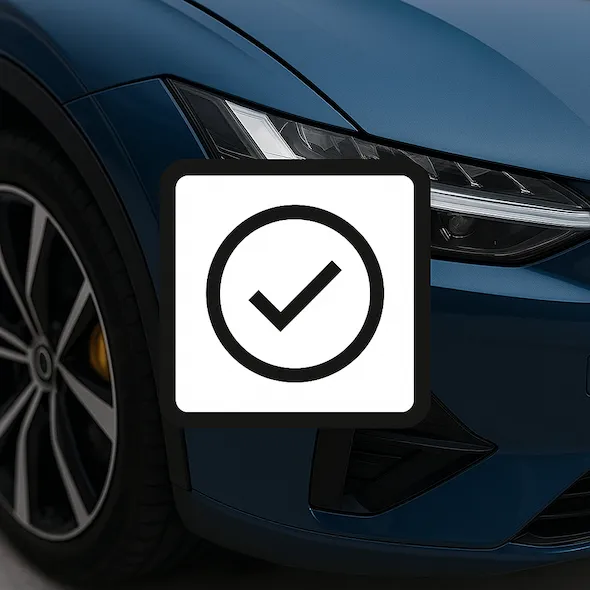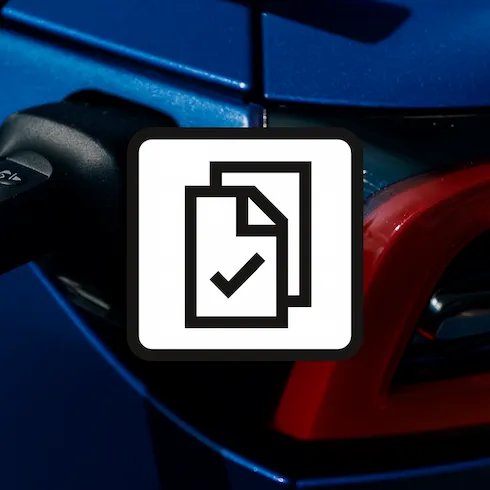Audi Road Tax Check
Check your Audi vehicle's road tax status for free
Used by 5000+ users
Free to use • No registration required • Instant results
How does our road tax checker work?
Enter your vehicle registration and we'll instantly check the DVLA database for your car's tax status.
You'll see if your vehicle is currently taxed, when it expires, and get an estimate of your annual tax rate based on your vehicle's specifications.

What's included in this tax check?
- Current tax status
- Tax expiry date
- Days remaining
- Annual tax rate estimate
- Vehicle details
Why is checking your road tax important?
Driving without valid road tax can result in:
- •£80 fixed penalty notice (up to £1,000 if prosecuted)
- •Vehicle clamping or impounding by the DVLA
- •Automatic number plate recognition (ANPR) cameras actively detecting untaxed vehicles
Our free tax checker helps you avoid penalties and keep your vehicle legal.
**This service provides information from the DVLA database but is not an official DVLA service.

Related Audi Tools
Audi MOT Check
Check your Audi vehicle's MOT status for free
Audi CO₂ Emissions Check
Check your Audi's CO₂ emissions and tax band
Audi HP Calculator
Calculate your Audi hire purchase payments
Audi Road Tax Check FAQs
What is Resolvo?
Resolvo is an AI tool designed to help people challenge their parking tickets using the latest UK parking laws. It reviews your specific situation, references the correct laws and regulations, and creates a strong, personalised appeal letter in minutes. Each year in the UK, millions of parking tickets are issued, often due to unclear signage, technical errors, or confusing rules. Resolvo simplifies the appeals process, helping people fight unfair fines with confidence by creating legally-sound appeals based on current parking regulations. Note: Resolvo supports appeals for both private parking tickets and council-issued Penalty Charge Notices (PCNs). However, it does not handle Fixed Penalty Notices (FPNs) for moving traffic violations, which typically require a court appeal.
How does Resolvo work?
Resolvo uses artificial intelligence to analyse your unique situation and match it with the latest UK parking laws. Here's how the process works: 1. You describe your parking situation and ticket details to Resolvo 2. Resolvo asks you clarifying questions to gather all necessary information 3. The AI analyses your case against current UK parking regulations and case law 4. Resolvo identifies the strongest legal grounds for your appeal based on your circumstances 5. A personalised appeal letter is instantly created, citing relevant laws and precedents 6. You receive the completed letter that you can send directly to the parking company or council The entire process takes just minutes, compared to the hours it might take to research and write an appeal yourself.
How does Resolvo help with parking tickets?
Resolvo helps you appeal unfair parking tickets by generating a free, legally-based appeal letter tailored to your situation. We also provide information on your vehicle's tax, MOT, and emissions status to support your case.
What is a road tax check?
A road tax check lets you verify if your vehicle is currently taxed and legal to drive on UK roads.
How do I use this road tax checker?
Enter your vehicle registration number and click 'Check Vehicle'. You'll instantly see your tax status and expiry date.
Is this road tax check free?
Yes, Resolvo's road tax check tool is completely free to use for all UK drivers.
How accurate is the road tax data?
We use official data from the DVLA and UK government sources, so the information is as accurate and up-to-date as possible.
What happens if my vehicle is untaxed?
Driving an untaxed vehicle is illegal and can result in fines or your vehicle being clamped. Tax your vehicle as soon as possible if it is untaxed.
Can I check the tax status for someone else's vehicle?
Yes, as long as you have the vehicle registration number, you can check the tax status for any UK vehicle.
Does Resolvo store my vehicle data?
No, Resolvo does not store your vehicle registration or results. All checks are private and secure.
How can I cancel my vehicle tax?
You can only cancel your vehicle tax by telling DVLA that your vehicle has been: sold or transferred to someone else, taken off the road (SORN), written off by insurance, scrapped, stolen, exported from the UK, or registered as tax-exempt. DVLA will automatically cancel your tax and send a refund cheque for any full months remaining (calculated from when they receive your notification). You won't get refunds for fees, surcharges, or partial months. If your refund doesn't arrive within 8 weeks, contact DVLA directly.
How much road tax do I pay?
Your road tax amount depends on your vehicle's registration date and CO₂ emissions. Vehicles registered before March 2001 pay based on engine size (£220-360). Those registered March 2001-2017 pay CO₂-based rates (£20-760). Vehicles from April 2017 onwards pay a first-year rate based on emissions (£10-5490), then £195 annually. Cars over £40,000 pay an extra £425 supplement for five years. Our checker shows your exact rate based on DVLA data.
When is my road tax and MOT due?
You must pay your Vehicle Excise Duty (VED), or road tax, and have an MOT inspection every year. The DVLA will mail you a V11 reminder approximately a month before your tax is due. Note that cars are only subject to annual MOT testing once they are three years old, or four in Northern Ireland. Mark these dates in your calendar as driving without valid tax or MOT is illegal.
How do I pay my road tax online?
The most convenient way to renew your road tax online is directly with the DVLA. On the DVLA website, navigate to the 'Renew your vehicle tax' section, enter your vehicle number from your V5C logbook and the reference number on your V11 form, and proceed as directed. You'll need your V5C registration certificate and a valid payment method.
What happens if I don't tax my vehicle?
Every vehicle on public roads must contribute towards their maintenance and other associated costs through road tax. It is illegal to drive your vehicle untaxed; doing so can result in substantial fines, court action, and even vehicle impoundment. The DVLA actively enforces vehicle taxation.
Do I need to tax my vehicle if it is registered as SORN?
If your car has a Statutory Off Road Notification (SORN), you do not need to pay road tax or get your annual MOT until you're ready to sell the vehicle, or get it back on the road. Registering your car as SORN lets the DVLA know that it'll be off the road, and sets you up to get a refund on any remaining road tax.
Will I get a refund on my road tax if I sell my vehicle?
Yes, you can get a refund on your road tax when you sell your car or van. Contact the DVLA or apply for a DVLA car tax refund online. You can expect to receive payment within six weeks. Refunds are paid in full months only - you won't get a refund for partial weeks or days.
Can I drive a new vehicle home without road tax?
It is illegal to drive an untaxed car in the UK. Road tax must be paid on vehicles before they can be driven on public roads. This can be done online via the DVLA, at the post office, or even at the dealership when purchasing. The tax doesn't transfer from the previous owner.
Are there any vehicles that don't need road tax?
Yes, some vehicles are exempt from UK road tax including: historic vehicles (over 40 years old), cars and vans used by disabled people, vehicles used for agriculture, and those registered as SORN. Electric vehicles (EVs) were exempt until April 2025 but now pay standard rates.
Why can't I find my vehicle in the system?
If you can't find your vehicle, it may be due to: the vehicle being very new (records not yet updated), incorrect registration number entry, the vehicle being registered outside the UK, or system delays. Double-check your registration number and try again, or contact the DVLA if problems persist.
Why is my vehicle tax expiry date incorrect?
If your vehicle tax expiry date appears incorrect, notify the DVLA immediately as this may reflect a clerical error in their system. Keep in mind that it can take up to two working days for DVLA records to be updated after payment or other changes to your vehicle registration.